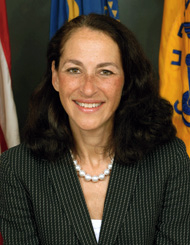
The Center for Disease Control issued a report late last year warning that, conservatively speaking, more than 2 million Americans are sickened and 23,000 are killed each year by antibiotic-resistant infections.
Meanwhile, 80% of all antibiotics used in America are placed in animal feed.
Now comes word the Food and Drug Administration conducted a ten-year study of 30 animal feed antibiotics, and concluded that 18 of them posed a high risk for developing antibacterial-resistant superbugs, which can make their way into humans.
The FDA withheld this study. But through the Freedom of Information Act, the Natural Resources Defense Council got its hands on the study and is making it public this week.
Avinash Kar is one of the attorneys with the Natural Resources Defense Council who sued for the release of this study. He joins us from Washington, D.C.
David: How can the FDA possibly defend this behavior?
Avinash: FDA is likely to point to its recent guidance, its policy recommendations that it put out late last year, which are voluntary and ask for drug manufacturers to give up some of the uses of antibiotics to animals that are not sick. We think that’s inadequate. It’ll simply allow many current uses to continue under a different name. And, of course, it is still voluntary.
David: What was in this study, Avinash? What was the FDA not telling the American people?
Avinash: FDA reviewed the safety of 30 different penicillin and tetracycline antibiotics added to animal feed over the course of the last decade. It concluded that almost none of these antibiotics meet the safety standards that FDA established in 1973. FDA also compared these antibiotics against the most recent policy standard for looking at the safety of antibiotics in feed, and concluded they would not be approvable today under those standards if they were to come up.
Having made these conclusions, FDA should have acted on them, and should have stopped the use of these antibiotics in animal feed. Instead, it’s put out mere recommendations that don’t go far enough.
David: This study involves two of my favorite people, Big Ag and the pharmaceutical industry. So, Big Ag and the pharmaceutical industry are working hand in hand to encourage farmers to give our livestock penicillin. Why are they giving our livestock penicillin?
Avinash: Antibiotics are used in animal feed, whether it’s cattle, swine, or poultry, for a couple of reasons when they’re used on animals that are not sick. The first is to speed up animal growth. The second is to compensate for the crowded and often unsanitary conditions that often exist in facilities.
So it’s to speed up animal growth artificially, and to compensate for the conditions and none of the animals are sick. We’re not opposed to the use of antibiotics on animals that are sick, but this is basically the equivalent of adding antibiotics to the cereal of children day after day because they might get sick in daycare. It’s not an appropriate use.
David: Instead of housing the animals properly, and treating them properly, they’re looking for a quick fix, which is just throw some antibiotics into the feed. The FDA did not release this study. Why not?
Avinash: I’m not sure why they didn’t release this study, because it calls for action on their part. It shows that these antibiotics are not being used in a way that is protective of human health. FDA has consistently given in to the livestock and pharmaceutical industries on this issue, and this continues their pattern of inaction on this issue, and their failure to really engage meaningfully on it.
David: Who does the Food and Drug Administration work for, the American people, or Big Ag and Big Pharma?
Avinash: Well, they’re supposed to be working for us, and they’re supposed to be protecting public health. Unfortunately, their actions don’t often move towards protecting public health. They seem to be protecting industry.
David: Are lobbyists allowed to lobby the FDA?
Avinash: Yes, they are. For instance, when FDA put out its voluntary recommendations late last year, the Animal Health Institute, which is the animal pharmaceutical industry association, had advanced word of the announcement, which none of us knew about until we heard about it through their press release.
David: Is there something American farmers could be doing to raise our animals without antibiotics?
Avinash: We think there’s a really good example in the experience in Denmark. Denmark produces about 30 million hogs a year in an industrial system of production. It’s about the same number of hogs as Iowa produces in a year. They have managed to reduce their use of antibiotics by over 40% since they stopped the use of antibiotics in animals that are not sick.
They’ve done it through measures that are not exactly rocket science. They are doing better sanitation. They’re providing a little bit more space for animals. We’re not talking about pasture-raised animals here. We’re talking still about an industrial system of production. They’re weaning the animals a little bit later, and they’re taking other such good management measures that are helping them produce even more pigs than they were before, without the use of antibiotics.
David: That’s Denmark?
Avinash: Yes.
David: There’s something rotten in America. Avinash Kar is with the Natural Resources Defense Council.
Avinash: Thank you very much, David.
What do you think? Please join the conversation below.

